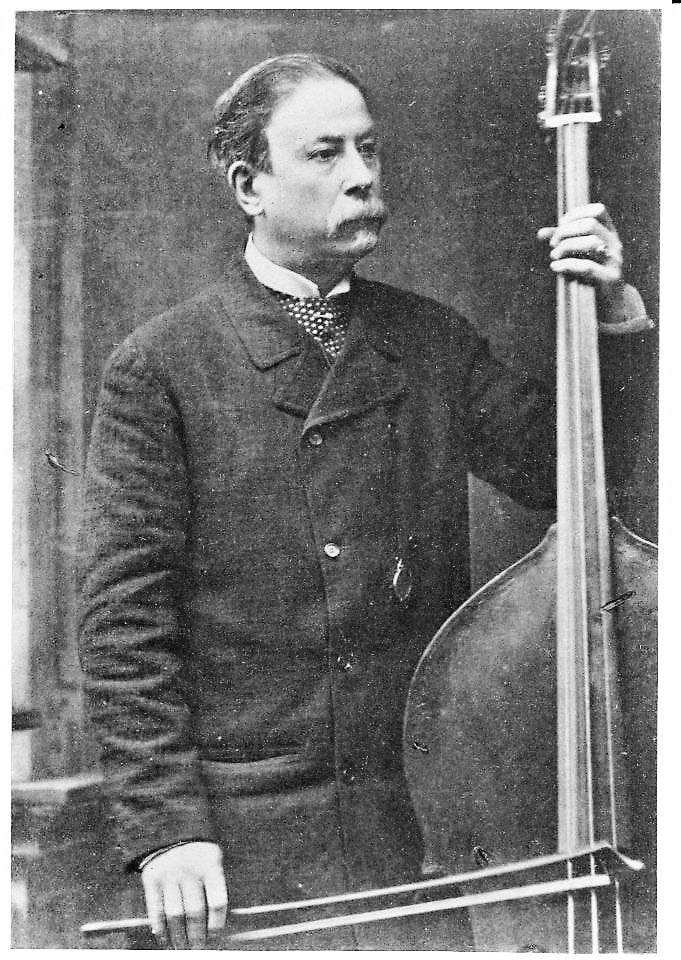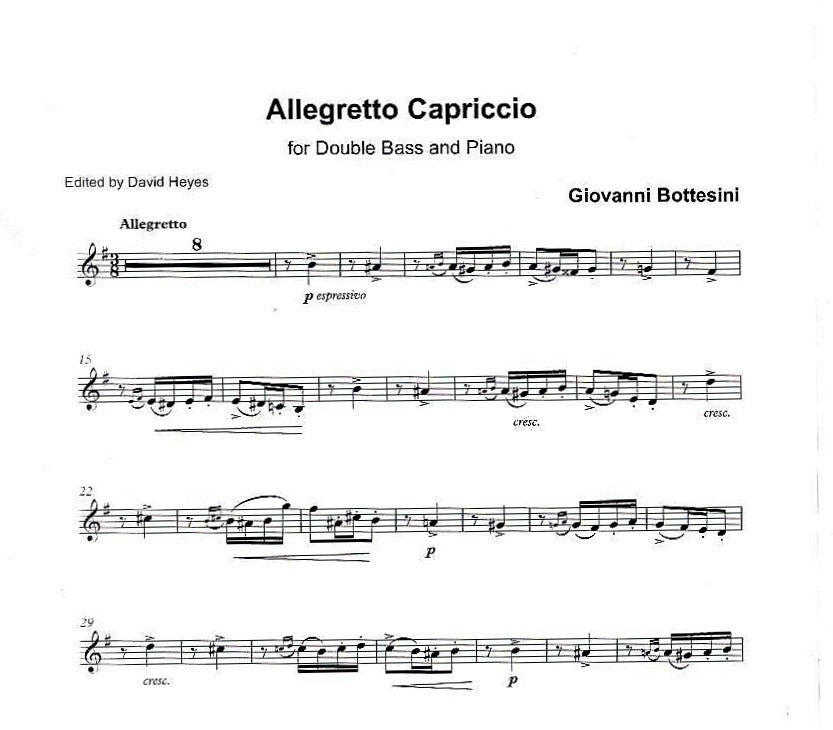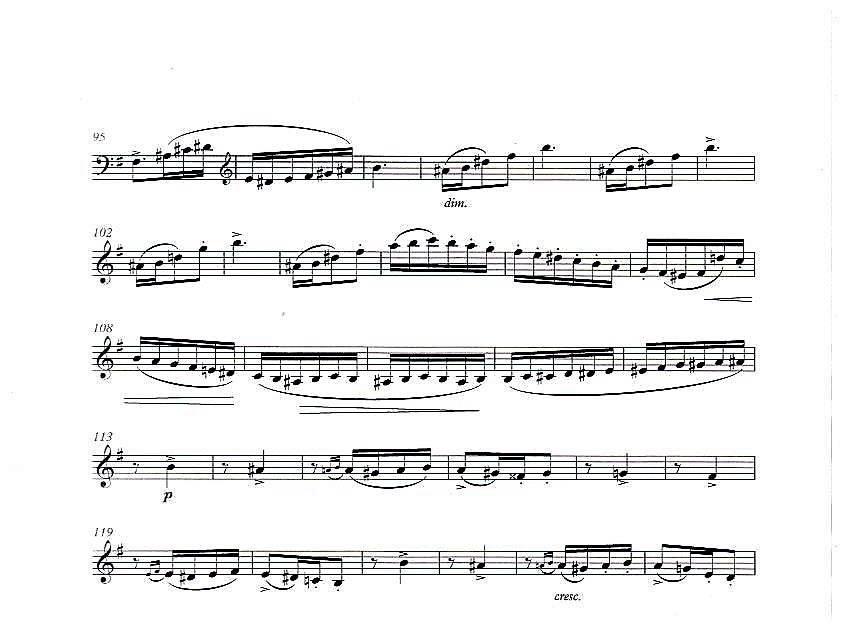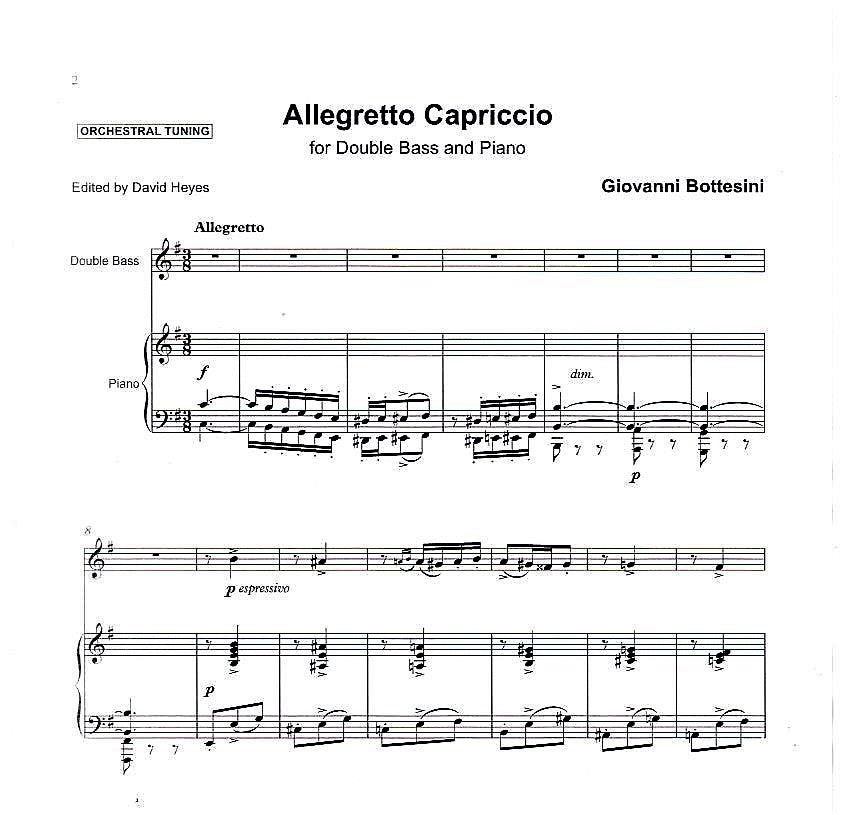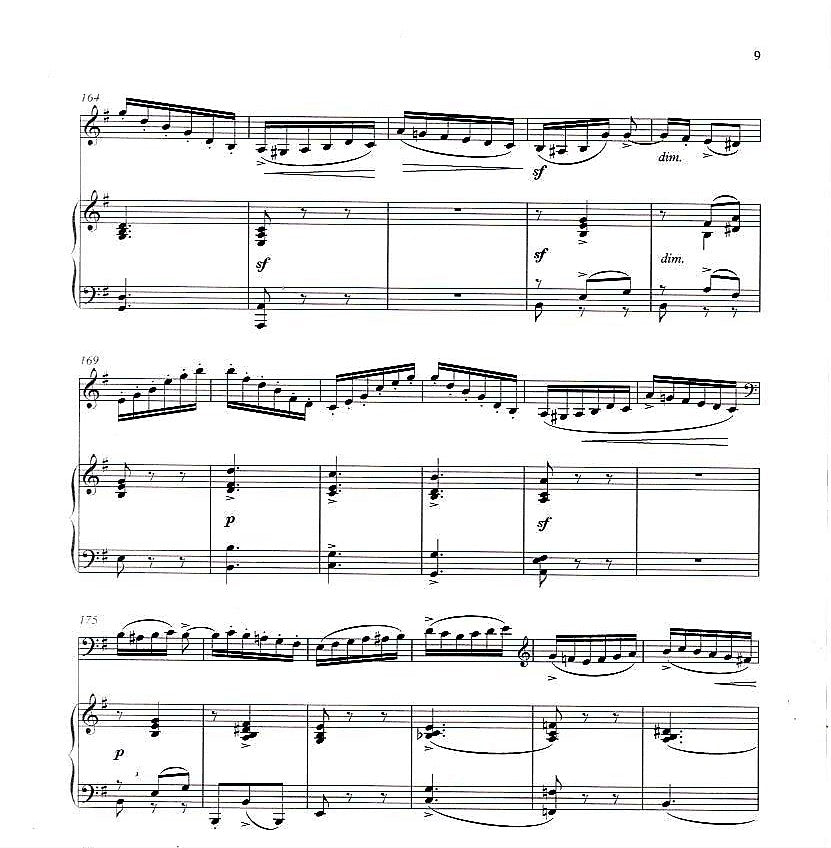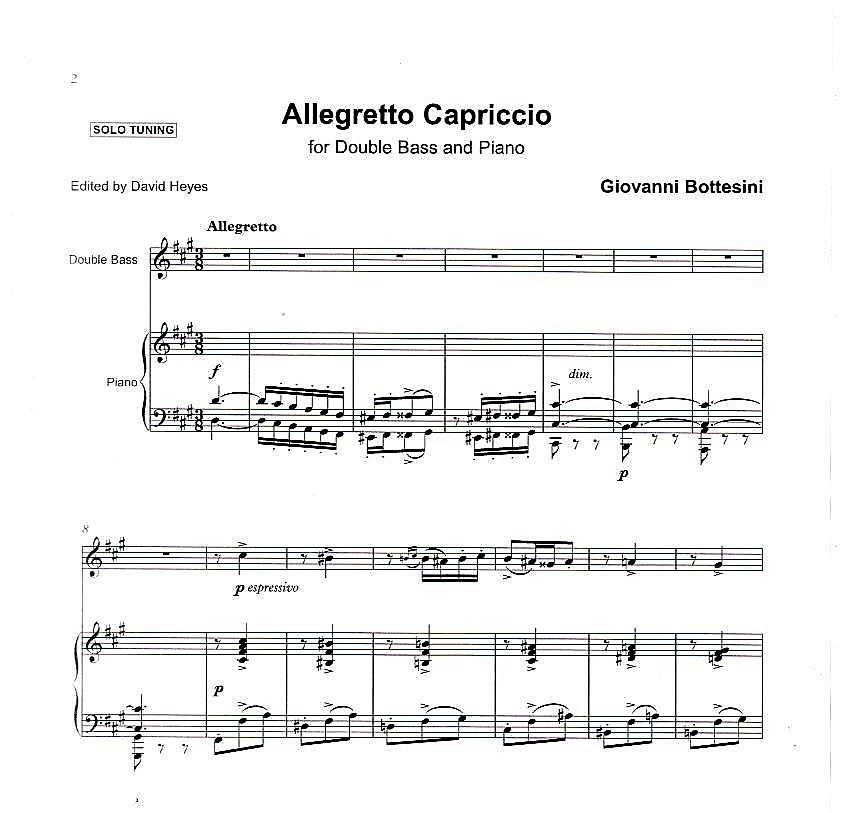David Heyes
Bottesini: Allegretto Capriccio for double bass & piano (ed. David Heyes)
Bottesini: Allegretto Capriccio for double bass & piano (ed. David Heyes)
Couldn't load pickup availability
About the Composition
Allegretto Capriccio is one of Bottesini’s most stylish and elegant pieces for double bass and is believed to be his final solo work for the instrument. Chris West, the noted Bottesini scholar, commented that “the only mention of this piece I found are from the Gazzetta Musicale di Milano review of the concert in Parma in February 1889, and the mention that he orchestrated it in a letter of May 1889.”
Allegretto Capriccio uses the entire register of the solo double bass and demonstrates Bottesini’s complete mastery of the instrument. There are technical challenges throughout the solo register with the ability to demonstrate the lyrical and singing qualities of the double bass. The accompaniment is simple and understated, but also provides gentle rhythmic momentum and a wonderfully colourful support.
This edition is based on a manuscript in G minor, using a minor-3rd scordatura which Bottesini often employed, and includes accompaniments for both solo and orchestral tunings. The double bass line in the piano accompaniment is how Bottesini wrote it in the manuscript.
A version for double bass and string orchestra (or string quintet) is also available.
About the Composer
Giovanni Bottesini was called the 'Paganini of the Double Bass' and was the finest double bass soloist of the 19th-century. He was born in Crema (Lombardy) on 24 December 1821 and studied at the double bass at the Milan Conservatoire with Luigi Rossi, alongside harmony and composition with Nicola Vaccai (1790-1848) and Francesco Basili (1767-1850).
His remarkable career as a soloist began in 1839 and lasted fifty years, taking him to every corner of the world. From Italy, his travels took him to Cuba (1846), USA (1847), England (annually from 1849), Egypt, Ireland, France, Germany, Russia, Mexico, Spain, Belgium, Monte Carlo and many other countries throughout a long and distinguished career.
Bottesini was also famous as a composer writing at least 13 operas (Cristoforo Colombo, 1847 / Il diavolo della notte, 1856 / Ali Baba, 1871 / Ero e Leandro, 1879), a Messa da Requiem (1880) and an oratorio, The Garden of Olivet (1887 - first performed at the Norwich Festival), works for orchestra, 11 string quartets, string quintets, songs and many virtuoso works for double bass. As a conductor he is remembered primarily for directing the first performance of Verdi's Aida in Cairo in
1871, but was also a respected composer of Italian opera, including seasons in Mexico, Paris, Palermo, Barcelona, London, Buenos Aires and Parma.
Giovanni Bottesini died in Parma on 7 July 1889.
